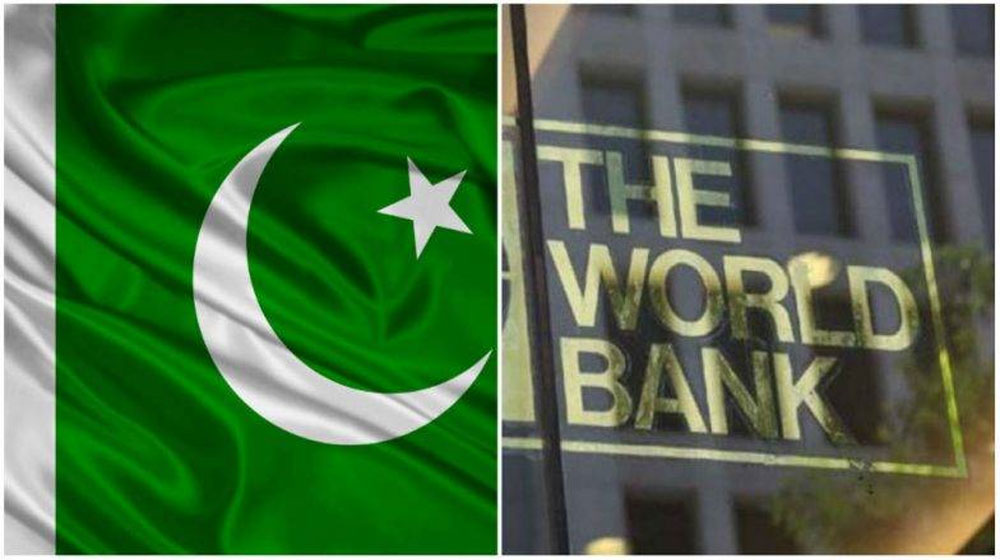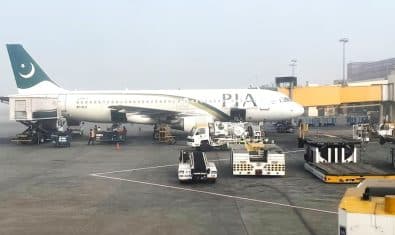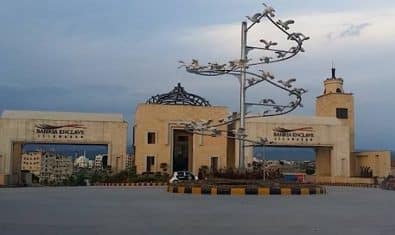Pakistan’s economy is stuck in a low-growth trap with poor human development outcomes and increasing poverty as economic conditions leave the country highly vulnerable to climate shocks, with insufficient public resources to finance development and climate adaptation.
This was stated by Martin Raiser, the World Bank’s Regional Vice President for South Asia, Martin Raiser, who is in Pakistan to reaffirm the Bank’s commitment to support the people of Pakistan.
He launched a series of Policy Notes that outline critical policy shifts required for a productive, sustainable, resilient, and healthy Pakistan.
The policy notes—focusing on child stunting fiscal sustainability, private sector growth, energy, learning poverty, agriculture, and climate change—are the culmination of several months of outreach and engagements conducted across the country under the “Reforms for a Brighter Future – Time to Decide” banner. They are intended to help inform the public policy dialogue in the context of the upcoming elections.
“Pakistan’s economy is stuck in a low-growth trap with poor human development outcomes and increasing poverty. Economic conditions leave Pakistan highly vulnerable to climate shocks, with insufficient public resources to finance development and climate adaptation,” said Martin Raiser. “It is now time for Pakistan to decide whether to maintain the patterns of the past or take difficult but crucial steps towards a brighter future.”
The policy notes argue that Pakistan needs to:
- Address its acute human capital crisis—including the high prevalence of stunting and learning poverty—by adopting a coordinated and coherent cross-sectoral approach to basic services involving both provincial and federal governments.
- Improve the quality of public spending and take serious measures to expand the revenue base, ensuring that the better off pay their share.
- Pursue business regulatory and trade reforms and reduce the presence of the state in the economy to increase productivity, competitiveness, and exports.
- Remove distortions that undermine the performance of the agricultural and energy sectors, including through subsidy reform and privatization of electricity distribution companies.
“Almost 40% of children in Pakistan suffer from stunted growth, more than 78% of Pakistan’s children cannot read and understand a simple text by the age of 10. These are stark indicators of a silent human capital crisis that needs priority attention,” said Martin Raiser. “With additional spending on water and sanitation of around 1% of GDP per year and better coordination at the local level, stunting could be halved over a decade with significant positive impacts on growth and incomes. This is just one example of the huge economic benefits a coherent and decisive reform strategy could have”.
During his visit, he will meet government officials at the Federal and Provincial levels, and representatives from the private sector and academia. He will also visit the DASU and Tarbela Hydropower Projects, as well as project sites in Sindh and Punjab.
In Pakistan, non-payment of taxes and corruption are obstacles to development, Martin Raiser said while addressing a seminar in Islamabad. He said political stability is essential for sustainable growth in Pakistan, adding that financial stability is also essential while Pakistan continues to suffer from a debt repayment problem.
The WB official said Pakistan must review its revenues and expenditures afresh. The tax system should be reformed and the tax system in the retail sector should be harmonized. The sales tax system should be harmonized, and the tax system in the property sector improved, Raiser said, adding that 25% of women were currently working or looking for work. He added that 70% of Pakistan’s revenue goes into debt repayment.
Inconsistent policies
Meanwhile, the World Bank has released a report based on possible reforms for Pakistan’s bright future. According to the report, there is a lack of investment and exports due to inconsistency in policies, while Pakistan’s agricultural sector is unproductive and stagnant.
According to the World Bank, there are six major problems facing Pakistan, including a human capital crisis. It says that the underutilization of available human resources is affecting the country’s productivity and growth. Moreover, 40% of children under five years of age suffer from stunting.
Pakistan has the highest number of out-of-school children in the world, at over 20 million, according to the World Bank report, adding that 79% of children under 10 years of age are unable to read. The report further says Pakistan faces a very high fiscal deficit. The fiscal deficit reached its 22-year high of 7.9% at the end of the fiscal year 2022, it adds.
Pakistan’s outstanding debt has been found at a record high of 78% above the legal limit, as per the World Bank report. It also notes that there is a lack of investment and exports due to inconsistency in the country’s policies.
Pakistan’s agricultural sector is unproductive and stagnant, the report says, adding that the share of the agriculture sector in Pakistan’s GDP is 23%. The agricultural sector employs 40% of the labour force, the World Bank says.
It further says the energy sector is unreliable and a burden on the economy, while its circular debt is creating financial difficulties. The World Bank says Pakistan’s public sector is ineffective, while vested interests drive its policy decisions.






















The concern of Pakistan representative need to focus and attention against the pointed out facts about our country system which is going day by day decline position
Zhaid